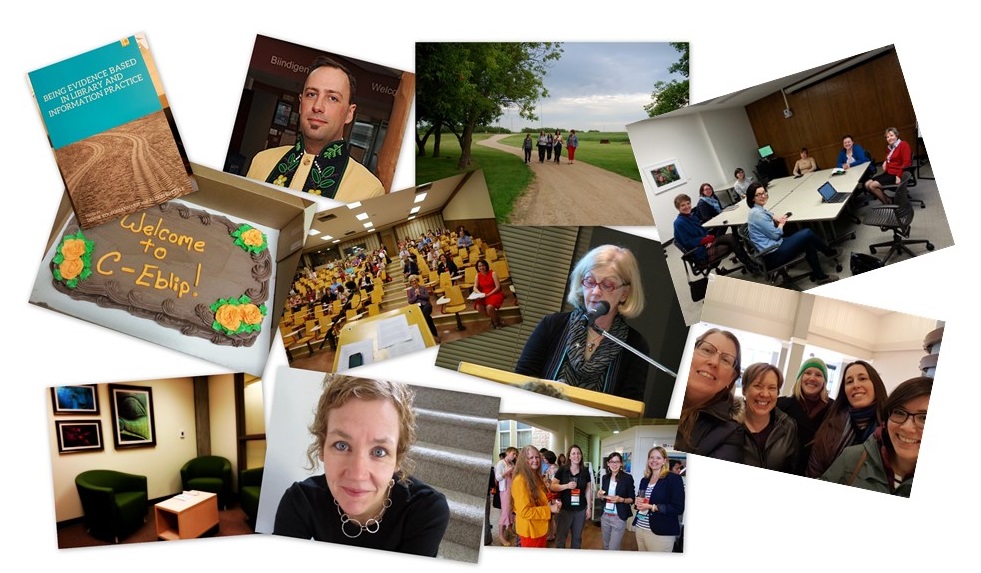By Katya MacDonald, PhD
Research Facilitator, University Library, University of Saskatchewan
Research identifying that mid-career researchers have particular needs and challenges has been taking place since at least the early 1990s. The mid-career phase is the longest and sometimes most nebulous stage of an academic career, and one that can take many different directions and often moves away from the more focused goals of early career researchers.
Studies looking at the needs of mid-career researchers have identified various themes in researchers’ perspectives, but few studies have focused specifically on mid-career librarians as researchers. Some general research experiences may resonate with librarian researchers, and there may also be others that haven’t yet been articulated.
Some researchers’ observations of their mid-career experiences across universities and disciplines include:
Research community:
- An interest in stronger community and relationship-building in the research process, among librarian researchers
- Desire for informal peer support networks to approach with a range of questions and considerations, to help create an organizational culture of supports
- Time pressures that make it difficult to take an interest in others’ research
- Conversation about research is valuable, but can also be a site of imposter syndrome
Research practices and communications:
- A need for supports for exploring new methodologies
- Additional attention to ways of capitalizing on the unique position of librarians to engage in interdisciplinary research
- Seeking recognition and support networks for methodologies that may not fit a conventional mold
- Desire for assistance with communicating the value of librarian research but also experiencing ambivalence about the “prestige economy” of research communication and evaluation of impact
Individual career trajectory:
- A need for more support for decision-making and reflection within a realm of many research and professional possibilities
- Workloads, funding, and time as barriers to research
- Research burnout after the push for tenure, and a desire to seek new collaborations or take research in new directions
- Seeking support for fluidity and change in the research process
Given all of the above, the diversity and at times fluidity of mid-career researchers’ experiences are clear. But within this diversity, some common themes emerge, especially around community, feedback, and increased recognition and understanding of researchers’ work.
Do any of these experiences sound familiar? Are there others that haven’t been discussed here?
References
Cheng, James, and Starr Hoffman. “Librarians and Administrators on Academic Library Impact Research: Characteristics and Perspectives.” College & Research Libraries 81, no. 3 (2020). https://doi.org/10.5860/crl.81.3.538.
Coate, Kelly, and Camille B Kandiko Howson. “Mid-Career Academic Women: Strategies, Choices and Motivation.” The Leadership Foundation, 2015. https://kclpure.kcl.ac.uk/portal/files/62795899/mid_career_academic_women_starategies_choices_and_motivation.pdf
Couture, Juliann, Jennie Gerke, and Jennifer Knievel. “Getting into the Club: Existence and Availability of Mentoring for Tenured Librarians in Academic Libraries,” College and Research Libraries 81, no. 4 (2020). https://doi.org/10.5860/crl.81.4.676.
Lacey, Sajni, and Melanie Parlette-Stewart. “Jumping Into The Deep: Imposter Syndrome, Defining Success and the New Librarian.” Partnership: The Canadian Journal of Library and Information Practice and Research 12, no. 1 (August 23, 2017). https://doi.org/10.21083/partnership.v12i1.3979.
Lamber, Julia, Tony Ardizzone, Terry Dworkin, Sam Guskin, Deborah Olsen, Phil Parnell, and David Thelen. “A ‘Community of Scholars?’: Conversations Among Mid-Career Faculty at a Public Research University.” To Improve the Academy 12, no. 1 (1993): 13–26. https://doi.org/10.1002/j.2334-4822.1993.tb00233.x.
Lyall, Catherine, and Laura R. Meagher. “A Masterclass in Interdisciplinarity: Research into Practice in Training the next Generation of Interdisciplinary Researchers.” Futures, Special Issue: Politics, Democracy and Degrowth, 44, no. 6 (August 1, 2012): 608–17. https://doi.org/10.1016/j.futures.2012.03.011.
Mamiseishvili, Ketevan, Michael T. Miller, and Donghun Lee. “Beyond Teaching and Research: Faculty Perceptions of Service Roles at Research Universities.” Innovative Higher Education 41, no. 4 (August 1, 2016): 273–85. https://doi.org/10.1007/s10755-015-9354-3.
Martorana, Janet, Eunice Schroeder, and Lucia Snowhill. “A Focus on Mentorship in Career Development.” Library Administration & Management 18, no. 4 (Fall 2004): 198–202.
Sassen, Catherine, and Diane Wahl. “Fostering Research and Publication in Academic Libraries.” College & Research Libraries 75, no. 4 (2014). https://doi.org/10.5860/crl.75.4.458.



